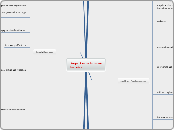impact e-porfolios on learning
Background
Dearing 1997
encourage HE to record reflect and build on achievement
DfES 2003 &2005
UK Govt supportive of all insitutions personal online work space
QCA's 2009
Blueprint E assessment
accept and assess e-porfolios
HEFCE
JISC
what is an e-P?
personal online space 'space for learning'
store work
record achievement (repository)
access personal course timetable (organising)
digital resources (personalised info)
links ot other learners (collaboration and feedback)
Beyond learning institutions - use throughout life
tool to market yourself
Product - purposeful selection of items chosen at a point in time
Process - capture ongoing storage of material, selection reflection and presentation
enhance learning
Some form of judgement or assessment
challenge/problem/issue
support learning
Govt policy
DfES policy - 'encompass personal portfolio to every school by 200'8
QCA's
Formal assessment mandated UK schools using e-portfolios 2009
expectation learners e-portfolio creators
privacy and ownership
drop in achievenment and engagement - tranisition points Yr 6-7
audience
current insitution/teachers/parents/future teachers
admissions officers/employers
organisation culture
planning approaches
approaches to teaching and learning - personalisation
role of teachers and tutors
ongoing professional learning
teams rather than en masse training
appropriate and reliable technology
efficient implementation
clear plans & goals
constructivist approach - personalisation
collaboration teachers and tutors
targeted professional learning
appropriate SW & HW
use of evidence in all forms
information overload
Future
longitudinal studies - benfits personal and collaborative online spaces
Research focus on self esteem and confidence
Potential audiences
how ready are they to use e-P's
how ready to understand e-P's
how ready to assess e-P's
Data mining
insitutional level
local level
wider level
privacy guidelines
21C learning
Life long learners
engagement and motivation
goal setting and reflection
feedback adn collaboration
attainment
progression and retention
self esteem
process of growth
benefit learning
innovative practice
new capacities enabled?
problems solved
implication for non implementation
joined-up teaching and learning approach
online repositories
planning and communication tools
draw on aspects of e-porfolios in time and circumstance
support personal organisation
Support reflection and presentation to range audiences
engagement and motivation
visual
students 'own way'
familiarity with computing environment
increasing self esteem
goal setting and reflection
requires self knowledge
subject knowledge
quantitive data on (Table 3 Becta) students increased capacity to think about their own learning
scaffloding of ideas
see gaps in visual display
feedback and callaboration
teacher /student
student/student
student/student another school
parents
experts
storing and presenting evidence
attainment
makes the evidence of attainment more obvious
self esteem
Support both pastoral andcurriculum outcomes
Support wide range of student abilities
achieving curriculum outcomes through purposeful activity
Attainment tangible
development, achievements, strengths and weaknesses visible
learners space for experimentation
integrated whole school/authority wide support
impact on learning processes
individual and group processes capturing and storing evidence
support further development
Scaffolding (templates for planning, calendars & goal setting exercises)
Feedback and collaboration
Connection between e-portfolios processes and emerging social software
evaluative framework
formative
potential of e-portfolios for learning
Qu: has helped me learn 91%
which aspects of exisiting proecets have an impact on learning
whether these are transferable
is research-oriented
summative
it's ability to do what it was designed to do)
Qu: Helps me judge if I've improved 82%
Commencing & sustaing e-P development
start small/suit local needs
initally e-P's support transition to lifelong repository
Differing implementation acoss diffrent areas
